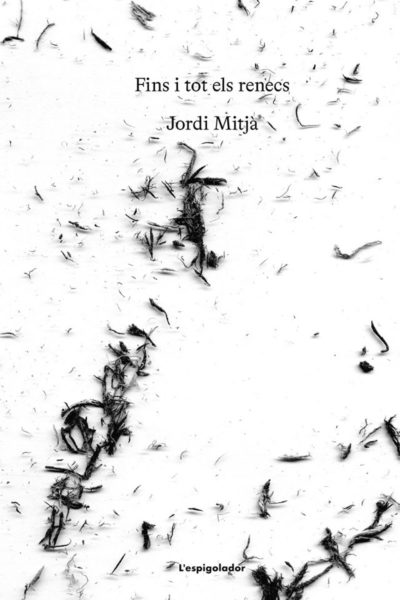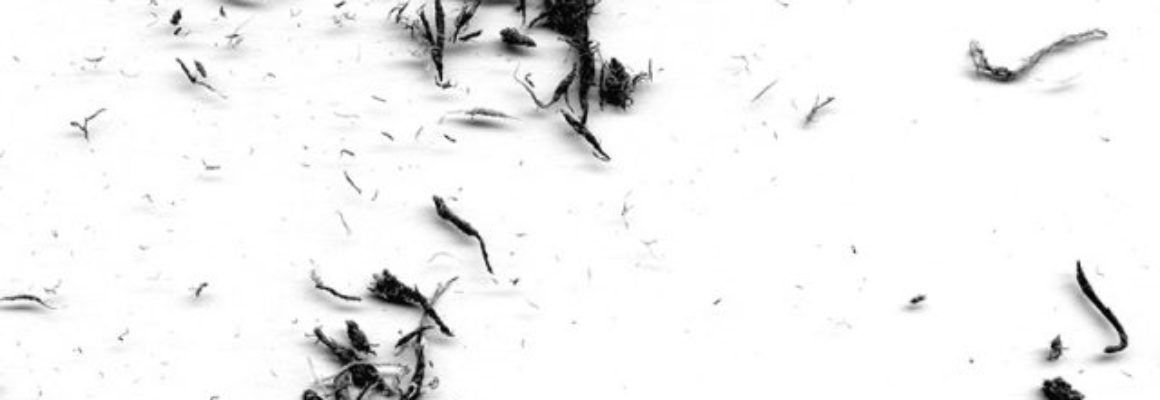La taca
2022
Prologue in catalan for the book Fins i tot els renecs, by Jordi Mitjà, ed. L’espigolador.
“La taca” is a prologue I did for the book Fins i tot els renecs, by Jordi Mitjà. This is a collection of poems where the artist traces the process of losing words that his father experienced, who suffered a stroke, a cerebrovascular disease that affected his language.
Fragment:
The stain
“The last time I went to visit Jordi Mitjà in Lladó, he took me to the iron workshop where he works with all his discards and where his brother also works with everything chosen. I badly remember that Jordi showed me some nets with which he made like some prints using sprays. I also bad remember that he told me something about his father, Heribert, and that, sometimes, when speaking, he lost words and replaced them with others. Some time later,
Jordi explained to me that he often took notes of what Heribert said and that he had written some poems, that he wanted to publish them, and he asked me to write a prologue to precede them. Despite that demand, he had already written a text that would work very well as a prologue, but I preferred leave it as an epilogue and pass on to me the task of having to do a prologue. I told him yes, yes, I would do it, and suddenly I thought I had to make a text that contains ideas that precede the central content of the book. «Anna, in this case the prologue must be like an air, like an atmosphere,” I say to myself. I don’t want to explain what Jordi already tells you at the end of the book. What do I want? I don’t know, look… For me, words, under the pressure of an assignment, also get lost. My thinking sends them to me in fits and starts, usually when I can’t write them, combined with dream images and non-textual memories. If what I write below is a prologue, it will be as a reflection of the small scattered lights, apparently unconnected, that have gone lighting up like shooting stars in the nocturnal reality of my mind in from reading Jordi’s poems and under the pressure of an assignment like this. Unable to make a text like a block, because the holes are the majority in the voice that comes out when I want to talk to you about what Jordi has collected and written, I will share them with you as they have been coming, with the confidence that these sparks will accompany you with sensitivity and delicacy to poetry and then will go out to let what really should shine shine: the words from black holes.
[…]”

My infinite thanks: Jordi Mitjà, Eduard Escoffet and Jordi Daví.
